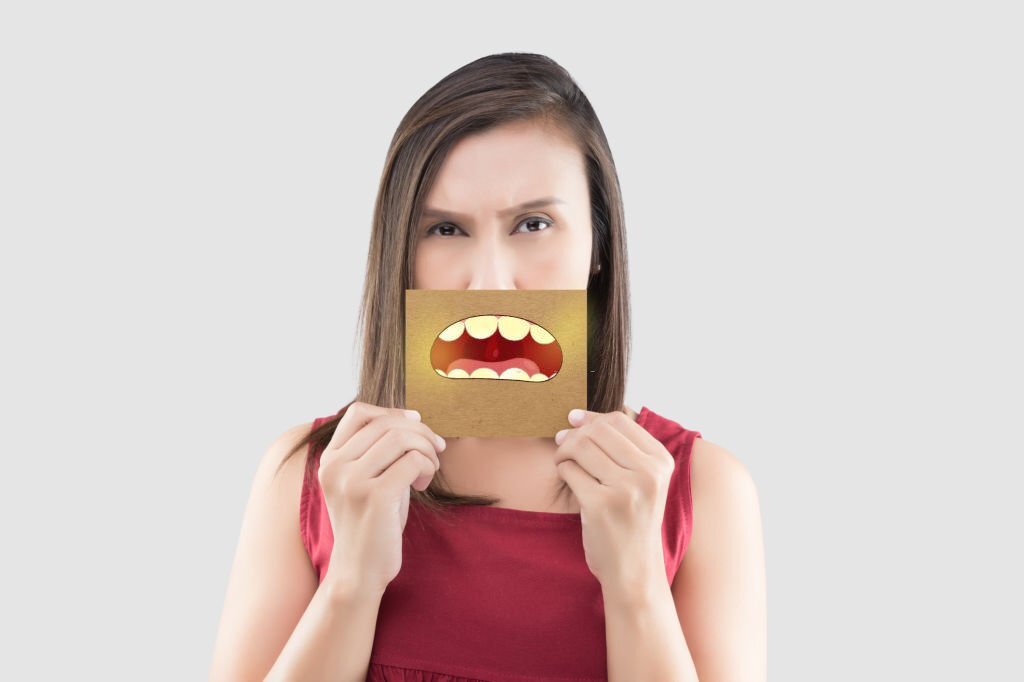Are you self-conscious about your breath? You’re not alone. Bad breath, also known as halitosis, is a common issue that affects people of all ages. The good news is that most cases of bad breath are treatable and preventable. However, there are many myths surrounding the causes of bad breath that can make it difficult to know how to effectively control it. In this blog, we will delve into the truth behind the common myths surrounding bad breath, so you can enjoy a fresh, minty breath with confidence.
Myth #1: Bad Breath is Caused by Poor Oral Hygiene
While it’s true that poor oral hygiene can contribute to bad breath, it’s not always the primary cause. Bad breath can be caused by a variety of factors, including medical conditions, diet, and lifestyle choices. Even individuals who practice good oral hygiene can experience bad breath if they have an underlying condition that affects their breath.
Myth #2: Mouthwash Can Cure Bad Breath
Mouthwash can help freshen your breath temporarily, but it won’t cure bad breath. The reason behind this is that mouthwash targets only the bacteria on the surface of your tongue, and that too for a short period of time. In order to have long-lasting fresh breath, you need to target the root cause of bad breath. This can be achieved by visiting your dentist or dental hygienist, who can identify underlying causes and recommend an appropriate treatment plan.
Myth #3: Smoking Causes Only Lung-related Problems
Smoking not only causes lung-related problems but it also contributes to the development of bad breath. Besides its known health risks, smoking also causes numerous oral health problems that can lead to bad breath, including dry mouth, gum disease, and tooth decay. If you’re a smoker and experiencing bad breath, consider quitting smoking, or at least reduce your tobacco intake.
Myth #4: Only Garlic and Onion Cause Bad Breath
While garlic and onion are notorious for causing bad breath, they are not the only offenders. Foods such as dairy products, acidic foods, and sugary foods all contribute to the development of bad breath. These types of foods can create an environment where bacteria thrive and produce unpleasant odors. If you’re experiencing bad breath due to your diet, consider eliminating or reducing these foods in your diet.

Myth #5: Bad Breath is Not a Serious Issue
Bad breath can be a sign of a more serious underlying condition. Persistent bad breath can indicate health problems such as liver or kidney issues, acid reflux, or uncontrolled diabetes. In addition, bad breath can be a symptom of various oral health conditions such as gum disease and tooth decay.
Bad breath can also have a significant impact on the quality of your life. Social interactions can be negatively affected, leading to embarrassment and low self-esteem. It can also be a hindrance in professional settings, leading to lost opportunities and dismal career outcomes.
Therefore, it’s essential to address and treat bad breath, not just for aesthetic reasons but for overall health concerns as well.
The Bottom Line
Bad breath is not just an unpleasant odor, but it can also indicate underlying health conditions that need to be addressed. There are various effective treatments available, including regular oral hygiene practices, professional dental cleanings, and addressing underlying health conditions. By taking preventative measures, managing your diet, and visiting your dentist regularly, you can improve your oral health and tackle bad breath effectively.
Myth #6: Mouthwash Alone is Enough to Eliminate Bad Breath
While mouthwash can help freshen your breath, it can only offer temporary relief. Mouthwash does not address the underlying causes of bad breath, such as poor oral hygiene or an underlying health condition. In fact, some mouthwashes can actually worsen bad breath by drying out the mouth and exacerbating the odor. Thus, mouthwash must be used in conjunction with other oral hygiene practices such as brushing and flossing.
Myth #7: Stronger Breath Mints or Gum are Better at Fighting Bad Breath
Unfortunately, stronger breath mints or gum are not better at fighting bad breath. While they may offer temporary relief, they do not address the underlying causes of bad breath. Moreover, using strong breath mints or gum frequently can lead to tooth decay and other oral health problems due to their high sugar content.
Myth #8: Bad Breath is Only Caused by Food
While food particles in the mouth can contribute to bad breath, they are not the only factors. Other factors like poor oral hygiene, dry mouth, tobacco use, and underlying health conditions can lead to chronic bad breath. Thus, it’s essential to identify and address the underlying causes to effectively treat bad breath.
Conclusion:
Bad breath can have a significant impact on a person’s quality of life, and it’s essential to understand the truth about this common issue. By busting the myths surrounding bad breath, we can identify and address the underlying causes of this issue. Poor oral hygiene, an unhealthy diet, dry mouth, tobacco use, and underlying health problems can all contribute to bad breath. To prevent and treat bad breath, we must maintain good oral hygiene practices, avoid tobacco products, watch our diet, and visit the dentist regularly. By taking these preventative measures, we can improve our oral health and overall well-being, and enjoy a fresh, minty breath and the confidence that comes with it.


